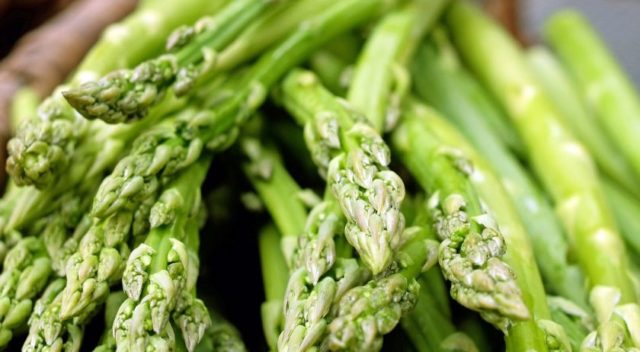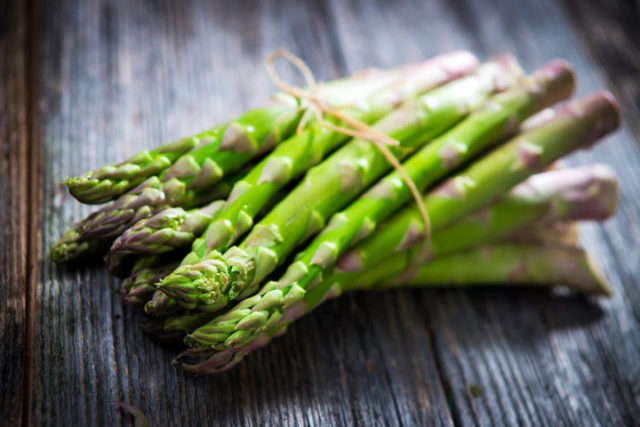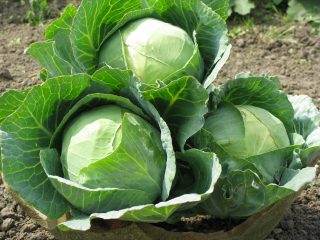Content
- 1 What does asparagus taste like?
- 2 What is asparagus made of?
- 3 What are the benefits of asparagus for the human body?
- 4 FAQ
- 4.1 Is it possible to eat asparagus while losing weight?
- 4.2 Can a nursing mother eat asparagus?
- 4.3 Can children have asparagus?
- 4.4 Is it possible to eat asparagus for gastritis?
- 4.5 Is it possible to eat asparagus for gout?
- 4.6 Can I eat asparagus if I have type 2 diabetes?
- 4.7 Is it possible to eat asparagus for pancreatitis?
- 5 Asparagus in cooking
- 6 Treatment with asparagus
- 7 The use of asparagus in cosmetology
- 8 Why is asparagus harmful?
- 9 Which asparagus is healthier?
- 10 How to choose asparagus
- 11 How to store asparagus
- 12 Conclusion
The benefits and harms of asparagus is an interesting question for those who are trying to adhere to a healthy diet. Asparagus, or asparagus, in many cases can improve well-being and have a healing effect, but for this you need to understand its properties.
What does asparagus taste like?
Fans of this unusual product most often compare the taste of asparagus with the taste of young cauliflower or broccoli. Others say the product is more reminiscent of cabbage stalks with a slight green pea flavor. But, one way or another, reviews about the taste of asparagus are mostly positive.
What is asparagus made of?
The value of asparagus is due not only to its pleasant taste, but also to the beneficial elements in its composition. The juicy stems of the product contain:
- potassium, phosphorus and calcium;
- iron and magnesium;
- sodium;
- sulfur;
- amino acids;
- antioxidant glutathione;
- saponins;
- polysaccharide inulin;
- rutin and kaempferol;
- quercetin;
- cellulose.
The element silicon is very important in the composition of asparagus - from 100 g of the product you can get up to 3.5 daily norms of this substance.
What vitamins are in asparagus
In addition to minerals, amino acids and other substances, asparagus contains many vitamins. Namely:
- vitamin C;
- vitamins B1 and B2;
- vitamins A and E.
Asparagus also contains nicotinic acid, or vitamin PP. Consumption of the product helps prevent the development of vitamin deficiency and increases the vigor and endurance of the body.
How many carbohydrates, proteins and fats are in asparagus
The nutritional value of asparagus is represented mainly by carbohydrates - these substances occupy about 3.1 g of the total volume. The product also contains some protein - about 1.9 g, and fat - 0.1 g.
How many calories are in asparagus
The calorie content of asparagus is extremely low. Fresh stems of the vegetable plant contain about 22 kcal per 100 g, the product is ideal for the diet of people watching their figure.
Glycemic index of asparagus
Asparagus is a product that is safe for people with high sugar levels. Its glycemic index is only 15 units; when consuming the product, there is no sharp increase in blood glucose.
What are the benefits of asparagus for the human body?
Asparagus in the diet has a very positive effect on health. If you eat asparagus regularly, this product:
- will have a beneficial effect on vision and skin condition due to the high content of beta-carotene;
- will help eliminate the symptoms of vitamin deficiency;
- will lower blood pressure and strengthen the walls of blood vessels;
- protects the cardiovascular system from the development of atherosclerosis and dangerous heart diseases;
- improves the condition of joints and connective tissues;
- will have a beneficial effect on blood composition;
- will have a calming effect on the nervous system and improve the quality of sleep;
- will serve as a good natural diuretic and will be beneficial for problems with the kidneys and urinary system;
- will improve digestive processes and help regulate metabolism in the body.
In addition, asparagus is used as a mucolytic for colds; it helps remove phlegm. Antioxidants and vitamin C in the product strengthen the body's immune system and fight various inflammatory processes. Asparagus against cancer is good as a prophylactic agent; it accelerates the processes of cellular renewal and helps prevent the development of cancer.
What are the benefits of asparagus for a woman’s body?
Since ancient times, asparagus has been especially valued for its beneficial properties for the female body. For medicinal purposes, the plant is actively used in Ayurveda and traditional medicine. Asparagus has a beneficial effect on a woman’s reproductive system, increases the ability to conceive, balances hormonal levels, and has a calming and mild analgesic effect. It is useful to use the product both during menstruation and during menopause in old age.
Also, the benefits and harms of asparagus for women’s health lie in the fact that the product helps women take care of their beauty.Vitamins and antioxidants in the plant help rejuvenate and maintain fresh and healthy skin. Asparagus helps maintain a healthy weight and prevents the accumulation of waste and toxins in the body.
What are the benefits of asparagus for the male body?
Asparagus also benefits the male body; first of all, the plant protects the genitourinary system from ailments. Asparagus has a beneficial effect on decreased libido and potency, inflammatory processes and prostatitis.
In addition, the product is beneficial for severe hangovers. It is recommended to consume asparagus in the morning after heavy feasts; the substances present in it will contribute to the rapid removal of toxic substances from the body. Asparagus will not only help relieve hangovers, but also protect liver cells from destruction.
Benefits of asparagus during pregnancy
While carrying a child, including asparagus in the diet for pregnant women is very useful. First of all, asparagus is rich in folic acid, which is necessary not only for the expectant mother, but also for the developing fetus.
In addition, the beneficial properties of asparagus help women fight swelling and relieve fatigue, calm the nerves and equalize blood pressure. Expectant mothers often suffer from constipation in later stages, but asparagus helps regulate digestion and promotes the timely removal of toxins from the body.
FAQ
Asparagus does not belong to the category of delicacy and scarce products. However, it is not found very often on the average table, which raises important questions regarding its use.
Is it possible to eat asparagus while losing weight?
Since asparagus is extremely low in calories, it is often used in weight loss diets. The product helps remove excess fluids, toxins and harmful substances for the body; in combination with a healthy diet, this allows you to get rid of about 2 kg per week.
Asparagus contains not only fiber, but also a large amount of vitamins and minerals. Therefore, the benefit of the product on a diet also lies in the fact that asparagus prevents the occurrence of vitamin deficiency and anemia. The product can be consumed in small quantities on a daily basis. It is only recommended to diversify your diet with other healthy foods and take breaks from using asparagus from time to time.
Can a nursing mother eat asparagus?
Despite the numerous beneficial properties of asparagus, it is better to avoid it during breastfeeding. The fact is that the product often causes allergies in infants and can also lead to bloating, colic and flatulence. Large amounts of fiber in the product are not always well absorbed by the digestive system of infants, so it is better to postpone the return of asparagus to the diet until after breastfeeding.
Can children have asparagus?
Since asparagus, rich in dietary fiber, is poorly absorbed by the intestines of a small child, it is recommended to introduce the product into the children's diet only from 2 years of age. In this case, the initial amount of the product should be minimal, and before offering asparagus to the child, it must be steamed or boiled. This will not make the product less useful, but its digestibility will noticeably improve, since the volume of fiber will decrease.
Is it possible to eat asparagus for gastritis?
Coarse dietary fiber in asparagus can cause harm to the body in acute gastritis, since fiber has an irritating effect on the walls of the stomach. If gastritis worsens, especially if it is accompanied by high acidity, it is undesirable to use the product.
But in a state of remission, you can eat asparagus in small quantities, it will improve digestion. But it is recommended to pre-boil the product and maintain moderate dosages, consuming asparagus no more than twice a week.
Is it possible to eat asparagus for gout?
Gout is characterized by excessive accumulation of uric acid in the joints and is considered a fairly serious chronic disease. If you have this disease, you must follow a strict diet that involves giving up a number of foods.
For gout, asparagus is also prohibited. In order not to provoke another exacerbation of the disease, even during the period of remission, it is better to avoid asparagus altogether or consume it in minimal quantities and after careful heat treatment.
Can I eat asparagus if I have type 2 diabetes?
If you have diabetes, asparagus can be of great benefit. It has a low calorie content and a low glycemic index, which means it does not lead to weight gain or glucose spikes. Asparagus saturates well, helps remove toxins from the body and relieves swelling, protects the liver, blood vessels and heart from the development of ailments.
Regular consumption of the product for diabetes helps maintain a stable sugar level.In addition, asparagus prevents the development of dangerous complications and generally strengthens the body.
Is it possible to eat asparagus for pancreatitis?
In case of acute inflammation of the pancreas, asparagus is strictly prohibited for consumption. First of all, it has an irritating effect on the digestive organs and leads to a deterioration in well-being. The increased content of saponins and fiber in the product can cause flatulence, nausea, and increased pain.
In the calm phase of the disease, in the absence of pain, asparagus can be included in the diet from time to time. But the boiled product will bring the greatest benefit - there are a lot of vitamins left in it, and it is digested faster and easier. The product should not be overused - it is enough to introduce asparagus into the diet 1-2 times a week.
Asparagus in cooking
Juicy and tasty asparagus is used very widely in cooking. First of all, it is used as an independent snack and as part of salads - you can eat asparagus raw, just wash the product properly.
The beneficial nutritional properties of asparagus are preserved even after heat treatment, so it is boiled and baked in the oven, fried and stewed. Cooking also has a positive effect on the taste of the product - asparagus retains its pleasant flavor, but at the same time becomes softer and more aromatic.
Asparagus goes well with most foods. It adds an unusual but interesting taste to vegetable salads and serves as a good addition to meat and fish dishes, seafood and flour products.
Treatment with asparagus
Traditional medicine often uses medicinal asparagus - the edible plant helps get rid of a number of diseases or at least alleviate the symptoms.
- For swelling. To prepare a useful diuretic, you need to chop a small asparagus root in the amount of 1 large spoon, then add 200 ml of water to the raw material and boil under the lid for about 10 minutes. After the product has cooled and infused a little, you can drink it four times a day on an empty stomach, just 50 ml. A home remedy will help remove accumulated fluid from tissues and improve kidney and heart function.
- For cholecystitis. Another recipe suggests using asparagus to relieve inflammation in the gallbladder and ducts. Asparagus must be crushed in the volume of 1 small spoon, pour a glass of boiling water and leave for 2 hours under the lid. After this, you need to strain the healthy infusion and drink 2 large spoons of it every couple of hours throughout the day. This remedy will help relieve pain and also relieve signs of inflammation.
- When potency weakens. For men, the following recipe will be useful - pour 5 asparagus berries with a glass of boiling water and leave covered for 8-10 hours. The infusion is taken 2 large spoons every 4 hours, in total the treatment should be continued for 2-3 weeks, then asparagus will help restore libido.
- Asparagus has a beneficial effect on tachycardia and other heart rhythm disorders. Fresh or dried stems should be crushed, brewed in hot water like tea, and drunk throughout the day, 100 ml at a time. In total, you need to take the product for 10 days, after which you take a break for a couple of weeks.
Asparagus is a good remedy for insomnia and anxiety disorders.About 100 g of the fruits of the plant should be poured with a liter of water and boiled over low heat for a quarter of an hour. If you take a few sips of this remedy shortly before bed, asparagus will normalize sleep and strengthen the nervous system.
The use of asparagus in cosmetology
The benefits of asparagus for the body lie not only in the culinary and medicinal properties of the product. Asparagus has a powerful cosmetic effect; due to its high content of vitamins and antioxidants, it is used for beauty care.
- Rejuvenating face mask. To eliminate the first wrinkles and make the skin more elastic, you need to grind a fresh asparagus stalk to a paste, and then combine 2 large spoons of the raw material with the same amount of cottage cheese and cream. The product is thoroughly mixed, distributed over the skin and kept for 15 minutes. If you carry out the procedure at least twice a week, your face will quickly look younger and your skin will become noticeably fresher.
- Whitening face mask. Another mask helps to even out the tone of the epidermis and eliminate age spots and freckles. You need to mix 1 large spoon of chopped asparagus with 1 small spoon of fresh carrot juice, and then add 1 small spoon of sour cream. The mask is distributed over the face, kept for 20 minutes, and then washed off, and it will be useful to wipe clean skin with an ice cube.
The beneficial properties of asparagus help get rid of cellulite deposits on the sides, thighs and buttocks. You need to prepare a decoction - pour 2 small spoons of chopped asparagus with a glass of hot water and simmer for just 5 minutes over low heat.
Then the product is infused for about half an hour, and then taken orally 4 times a day, half a glass.You can also wipe problem areas of the body with a useful decoction every day. Asparagus helps to establish fat metabolism, so the thighs, buttocks and abdomen quickly become more elastic and toned, and unsightly deposits disappear.
Why is asparagus harmful?
The beneficial properties and contraindications of asparagus are ambiguous; it can cause harm to the body in certain diseases and conditions. Contraindications for the product are:
- individual allergy to asparagus;
- acute pancreatitis or gastritis;
- acute stomach ulcers and severe intestinal diseases;
- cystitis;
- lactation period;
- severe gout.
The product contains quite a lot of sulfur. With frequent consumption of asparagus, this feature can give an original side effect - a pronounced unpleasant sulfur odor emanating from the skin. It is better to use the product in small quantities and only up to 3 times a week, then its properties will bring maximum benefit.
Which asparagus is healthier?
In stores you can see not only green, but also white asparagus. In fact, we are talking about the same plant; the main difference between the types of asparagus lies in the methods of cultivation. Green asparagus is grown in the usual way, allowing it to receive enough sunlight for photosynthesis. As for the white stems, when growing, they are completely covered with earth, so the shoots grow almost in the dark, without seeing the sun, and retain their white color.
In terms of taste, white asparagus is much softer and more tender than green asparagus. In addition, it contains more sugar, which makes it a higher calorie product.Green asparagus is a little tougher, but has lower nutritional value and also contains more vitamin B, ascorbic acid and folic acid.
Thus, white asparagus tastes much better. But the beneficial properties of green asparagus are still higher; it can offer the maximum amount of substances valuable for health.
How to choose asparagus
In order for a product to please you with its pleasant taste and beneficial properties, it must be chosen correctly when purchasing.
- The stems of quality asparagus should be dense, hard and closed, without shoots containing seeds.
- The stems should not have dark areas, black spots or any damage.
- Fresh asparagus looks juicy, and the stem of the plant has a rounded shape.
- Good asparagus does not emit any strong odor.
- You should not purchase asparagus if the tips of the stems are already slightly open - this indicates that the asparagus is overripe.
- In addition, it is better to avoid purchasing asparagus with seed shoots, too thin or flattened stems, or dried stem tips.
- The fact that the product is spoiled is indicated by the presence of black spots on the surface of the stems and the smell emanating from them.
In stores, asparagus is often sold in vacuum packaging. If condensation is noticeable on the inner surface of the film, and the vegetable stems themselves are wet, then you should not buy such asparagus - it is already beginning to deteriorate, and its benefits are significantly lower than that of a fresh product.
How to store asparagus
Green or white asparagus is a product with a very short shelf life. You need to keep asparagus in the refrigerator on the bottom shelf, but even so the stems can retain their freshness for no longer than 2 days.It is best to cook asparagus immediately after purchase.
Conclusion
The benefits and harms of asparagus depend on how wisely it is consumed. When used in moderation, this unusual vegetable has a beneficial effect on the body and helps strengthen strength and improve well-being. But at the same time, it is necessary to remember the contraindications of asparagus and stick to small amounts of consumption.













